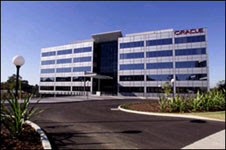
Oracle recently announced its latest offering to help organisations manage their information. This product, the Oracle Universal Online Archive, provides a secure repository accessible through an Open API including pre-defined web-services. The repository provides record retention and disposition management, auto-classification and information de-duplication for any type of corporate information including structured data from applications and semi-structured and unstructured data from desktop-systems, collaborative interfaces, scanned or faxed imaged, audio from telephony systems and video from closed-circuit security systems as examples.
By far, the leading source of information within an organisation is within the email system. The first release of the Universal Online Archive solution addresses this precise issue by supporting email management from Microsoft Exchange, Lotus Notes and a more generic SMTP interface. This integration allows for a filtered set of all inbound and outbound emails to be captured and stored within the repository. The repositories data de-duplication solution allows for single-point storage of these emails dramatically reducing the storage overhead for the archive in this environment.
An organisations' intellectual property is most often held within semi-structured and unstructured information formats including Microsoft Office formats, blogs, wiki’s and other solutions. The archive allows for this information to be ingested and managed securely within the repository alongside emails. The same set of retention and disposition policies can be applied to all formats of data held within the repository and information can be auto-classified in the same way also.
Data held in a financials solution can also be managed by the online archive repository as can data from HRMS, CRM and even an ERP solution and yes, we support SAP here as well!
Being based upon Oracle’s 11g platform, the archive provides you with unparalled scalability and all 11g database options are enabled including RAC. A wide-range of back-end storage platforms are natively supported including EMC, HDS, IBM and Pillar Datasystems Axiom product that offers equivalent storage and capacity at roughly a quarter of the price of its competition.
Oracle's research and development team has built a set of tools around the archive repository ensuring that data ingestion as well as data-analysis occurs with industry-leading performance and responsiveness.
Of course, the primary reason for implementing an archive is to support eDiscovery activities that could include legal-litigation against an organisation.
eDiscovery is a 7-step process for most organisations - reducing potentially millions of items of information down to the level of hundreds relevant to the activity. The Oracle Universal Online Archive is designed to provide an organisation with a secure, online repository of all corporate content. This ensures that in the event of an eDiscovery event taking place – there is no need, or at least a significantly reduced need, to load information from either paper of from disk-drives.
This means that organisation's can see significant reductions in costs associated with eDiscovery as well as reducing risk. New Australian legislation, currently in the court system, will enforce a requirement to adequately retain and dispose of corporate information in preparation for eDiscovery and in particular – litigation. Oracle’s Universal Online Archive solution is the only end-to-end platform that is capable of storing ANY corporate asset including documents, audio and video alongside structured data from your core-systems including CRM, HRMS and ERP.


No comments:
Post a Comment